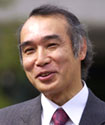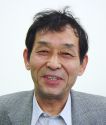In the third domain of our research, we mainly pursue an approach to improving community welfare in the developing countries of Southeast and South Asia from the viewpoint of social development via the active involvement of citizens.
The biggest challenges that these developing countries need to overcome include resolving the economic bias that drives people into tribal conflict, uncontrolled exploitation of natural resources, and securing policies that stabilize the region and protect human safety so that people can live their lives in peace. The political belief that “the development of a country’s economy automatically brings welfare to its nation” is now outdated.
In current times, what we need to be cognizant of is the possibility of “welfare society development.” A “welfare society” is a cooperative community where active attempts are made to dismantle the institutional barriers that deprive people of their capabilities, enabling all community members to flourish in their daily lives. “Development” refers to promoting such cognizance and the formation of policies that facilitate the elevation of entire community welfare levels via community members’ feedback from the usage of public and private welfare services. The focuses in this issue are: how policies can actually support the community in evolving into an optimum organization, alliance, and system under differing circumstances; the required policies and regulations to achieve this; and how such changes should be brought in.
In order to establish such “Policy Science for Welfare Society Development,” the following major research projects are carried out in this domain: |
 |
Firstly, communities are categorized based on resource utilization levels. To achieve this, village development cases from all over the world are assessed in a unified manner and the “function of resource transfer” is used as the theoretical ground to consider how locally governed welfare can be developed. Mr. Toshihiro Yogo is a COE Project member and the developer of the major systematical concepts, including the “Resource-Organization-Regulation Model” and the “Benefits and Costs of Organization,” which are widely employed by a variety of aid organizations. Mr. Yogo and lecturers at the Graduate School of International Social Development from five different countries are now working on international comparative studies, striving to establish the theoretical foundations that can provide global standards for social development.
At the same time, we are intending to deepen the theory of “Society Development as the Integration of Social Welfare and Development Studies” suggested by Dr. James Midgley, who is also a member of the COE Project. Our aim is to enhance the framework of welfare policy as a forward investment that provides the conditions for “capability enhancement” (Sen), rather than a mere response to peoplefs demands, covering a wide range cases from across the world.
As a part of this study, modern globalization, which, in the macro-economic view, tends to exploit Asian towns and villages, and the corresponding changes in the development strategies of international aid organizations, are examined in detail. |
 |
“Disability and Development” has been widely adopted into welfare practice as an intellectual framework. However, one of the focuses of the theory, “Community-Based Rehabilitation (CBR),” has reached a turning point in its theoretical development, particularly in Southeast Asia. This is due to a variety of factors, including diversification of approaches, modification of concepts, differences between the economical growth of different areas, and awareness of various forms of disability. Our aim is organizing these issues theoretically and taking on board practical demands to advance new CBR policies, and to establish an education and training center.
We also intend to carry out comparative studies concerning community resource formation and operating mechanisms, focusing on the citizen-initiative safety net, which is expanding as the people’s strategy to survive exploitation by economic globalization, in the slums of Asian countries. Our focus of study will be directed at the political approach of governments and the roles of external aid organizations to find out how their interaction can lead both policies and the political environment to an optimum state, starting from the expansion of various bodies that are concerned with welfare policies. We hope that we can establish a policy science beyond a fixed “blue-print” based on these studies. |
 |
Through the research described so far, we plan to redefine a number of miscellaneous approaches, such as Participatory Learning and Action (PLA), Citizen Workshops, Participatory City Planning, and the Citizen-Initiative Public Work Contract System, within the framework of Participatory Development Theory. Through this redefinition, we should be able to identify the gaps between theory and practice, and further develop and reinforce PLA approaches. Utilizing such refined approaches, our university can then set up a center to educate theoretical specialists in participatory community planning, and practical specialists, who implement such plans.
Further, we are supporting the Department of Community Development at the University of the Philippines, which is a COE Program collaborator, to systematize specialist education for social workers and development workers and to develop training programs for practical specialists. In this way, the University of the Philippines can become a center for welfare education in the South Asia region. |
|
 |


Professor, International Social Development Course, Graduate School of International Social Development
Mitsuhiko Hosaka |


Dean and Professor, Graduate School of International Social Development
Toshihiro Yogo |
|
 |





